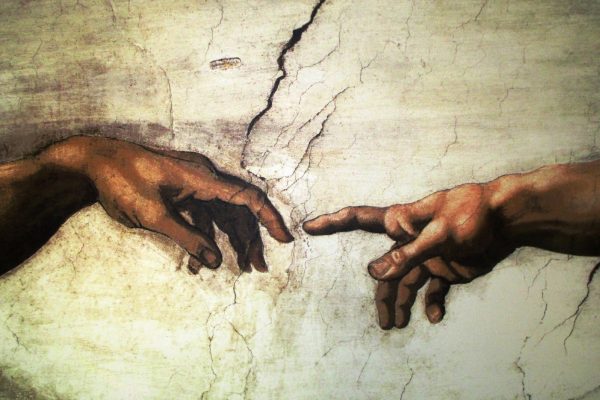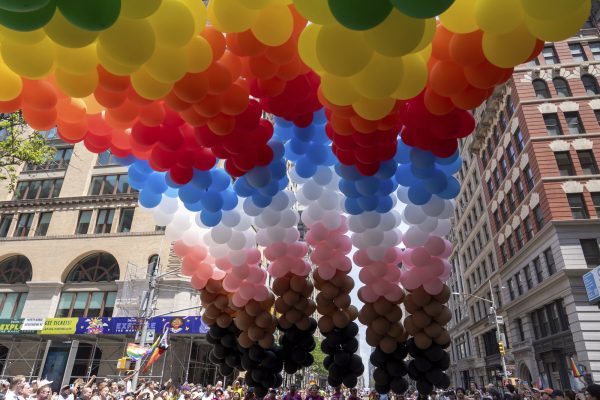On February 12, the French National Assembly voted 329 to 229 to legalize marriage and adoption for same-sex couples. If approved by the Senate, article 143 of the Civil Code will state, simply: “Marriage is contracted by two persons of the opposite sex or by two persons of the same sex.” In all subsequent articles relating to marriage and family law, the words “father” and “mother” will be replaced by “parents.”
Although the bill speaks with the cool eloquence of the law, the debate surrounding it, within and outside of the National Assembly, has been anything but dispassionate. Unsurprisingly, the French have been quite French when arguing over gay marriage, in style and in substance. Every Sunday or so since December, supporters and protestors of the law have taken to the streets en masse. In the two weeks leading up to the vote, deputies clashed day and night during a 110-hour marathon that tallied 4,999 amendments. (The British, by contrast, adopted same-sex marriage a week earlier after only a few hours of debate.) While French conservatives summoned apocalyptic visions of “nuptial migrants” flocking to the Republic to tie the knot, Minister of Justice Christiane Taubira—a sturdy, beautiful black woman from French Guiana who sports classy cornrow braids and bright-colored jackets—declared that the bill championed France’s most cherished ideals: “It exemplifies liberty—the freedom to choose one another, the freedom to decide to live together,” she said. “We also proclaim with this law the equality of all couples, of all families. Finally, we state that this law is a new step towards fraternity, because no difference can serve as a pretext to state discrimination.”
To counter Taubira, the opposition adopted a shrewd PR makeover and chose as its spokeswoman a fun, disheveled, gay-friendly night clubber who haunts late night TV shows under the stage name of Frigide Barjot (literally, “Frigid Crackpot”; also, a coarse pun on “Brigitte Bardot”). Flaunting her lanky 50-year old figure in miniskirts, pink halter tops, and bomber jackets, the self-professed “fille à pédés” (“fag hag”) has galvanized the troops with fresh, positive, even liberal-sounding slogans that appeal, on their face, to common sense and good intentions. To counter the egalitarian refrain of her opponent’s catchphrase, “marriage for all,” Barjot dubbed her own parade “march for all.” The seemingly inclusive rallying cry taps, like the left’s message, into France’s universalist sensibilities.
Barjot replaced the opposition’s former spokeswoman, Christine Boutin, a bullish conservative Catholic and right-wing deputy who once famously brandished a Bible in the Assemblée Nationale (a big no-no in French politics). From an American perspective, God has been strikingly absent from the debate. In spite of the odd spectacle of a handful of fundamentalists kneeling in front of the Parliament and praying for a divine intervention against the law’s passage, opponents of gay marriage have for the most part managed to distance themselves from ultra-conservative religious organizations. References to the Scriptures would not pass muster in a country that prides itself on being one of the most secular in the Western world. Fewer than 4.5 percent of the population attend mass more than once a month according to a 2010 survey, even though two thirds call themselves Catholics. In France, religion is, like sports, aspirational—belief is all, practice is optional.
For several years now the right and left have fought for the title of most zealous zealot of laïcité, France’s hard-core version of the separation of church and state. Having exploited this sacrosanct principle in recent years to hyperventilate about halal meat in supermarkets and ban Muslim mothers with headscarves from preschool day trips, conservative deputies found themselves poorly positioned to denounce marriage equality on religious grounds. Even the Catholic hierarchy stayed clear of the g-word; instead, it published an explicitly secular sales pitch, noting upfront: “None of [our] arguments [against gay marriage] have a religious connotation.”
To win in the court of public opinion in a country where 60 percent of the population approves marriage equality demanded a new approach. Barjot, who was a communication guru for Jacques Chirac’s conservative party in the ’90s, meticulously calibrated the slogans, talking points, and even dress code for the demonstration she orchestrated on January 13. Boys wore blue, girls wore pink (sans velvet headbands, which would conjure up images of Sunday school). The result looked like a gigantic color-themed birthday party, complete with blue, white, and pink balloons. Hundreds of thousands of people snaked through the streets of Paris, pastel-clad kids in tow, chanting ostensibly harmless platitudes such as “A Mommy and A Daddy for All,” “Paternity, Maternity, Equality,” “Daddy + Mommy = There’s Nothin’ Better For The Kiddies,” and—this is France after all—“On veut du sexe, pas du genre!” (“We want sex, not gender!”).
Anti-gay activists have attacked the right of homosexuals to adopt, a measure opposed by 54 percent of the French.
Barjot got the packaging right, and went to extreme lengths to stifle the homophobic outbursts that routinely plague such movements. Her crowds, for the most part, behaved. (The same cannot be said of the politicians and clergymen, who insinuated that allowing same-sex couples to marry is akin to polygamy, pedophilia, and zoophilia.) Demonstrators were instructed to use only a handful of pre-approved slogans, had to pick among a set of pink or blue pre-printed banners, and were admonished not to talk to journalists—just smile. With everyone looking the same and singing in unison, Barjot scripted and directed what will be remembered as one of the last commercials for the now almost-defunct nuclear family: 50 percent of all French children are born out of wedlock, and one marriage in three ends in divorce. According to the magazineMarianne, the protest cost €1 million. Two weeks later, on January 26, the bill for the demonstration in favor of same-sex marriage (no instructions, no dress code, no pre-printed signs, no balloons) ran to only €20,000.
Beyond such pricey stagecraft, Barjot and her allies managed to transmute a rear-guard action into a visionary campaign on the frontier of new civil rights—one that portends to preach a message of love rather than hatred. Instead of attacking same-sex marriage per se, anti-gay activists in the National Assembly, in the media, and in the streets, have been going after the second article of the bill: the right of homosexuals to adopt children, a measure that 54 percent of the French oppose. The maneuver is apt: Who would dare to place adults’ selfish attachments above the happiness of innocent children? How could one possibly take away a child’s chance to have a mom—or a dad? Ergo: every child needs a mom and a dad. In this line of thought, allowing gays and lesbians to adopt or use medically assisted reproductive technology is a violation of children’s natural rights. In the name of the last minority about to be oppressed, minors justement, the new crusaders have reinvented themselves as children’s saviors and placed their movement at the forefront of the defense of human rights.
Anyone who has secretly envied the cool detachment with which the French bring up bébé or simply remembers François Truffaut’s 400 Blows and the litany of abused, neglected, unloved, unhappy kids that make up half of French cinema (the other half being an exploration of the varieties of love triangles) will wonder: Since when have the French put their children first?
Of course, the argument is less progressive than it sounds: behind the Rousseauian notion of natural rights lurks a good old reactionary alibi: “the law of nature.” It goes like this: marriage is not about love, and it is not about social rights, financial advantages, or legal protection—all things that a well-designed civil union could grant same-sex couples. It is about organic families, and gays and lesbians “naturally” do not breed families. Notwithstanding the fact that same-sex couples have not waited for a piece of legislation to have kids, Barjot and her allies contend that allowing them to do so legally would amount to a kind of unconscionable experiment that could bring about the demise of civilization as we know it.
“Biology is the last refuge of those who fear a denaturalization of social norms,” explains Éric Fassin, a sociologist in the Department of Gender Studies at Paris 8 University and the author of The Inversion of The Homosexual Question. “Today’s passions concerning ‘gay’ filiation only confirm that homosexuality is still perceived by many as ‘unnatural.’ That’s why many feel that it undermines the nation as a naturalized social order.”
This resistance to acknowledging gay parents reflects France’s deeper difficulty accepting diversity in general, a point Taubira made implicitly during the National Assembly debate when she suddenly started reciting Creole poetry to challenge the opposition. [See video below.] “Nous les gueux / nous les rien / nous les peu / nous les chiens / nous les maigres / nous les Nègres” (“We the beggars, the nothing, the not much, the underdogs, the feeble, the Negroes”), she intoned, enlisting the French poet Léon-Gontran Damas, a founding father of the Négritude movement, as the unexpected, prescient spokesman for gay rights. It is easy for people to feel good about universalism when the social fabric has been rinsed of any color and contrast. But despite Barjot’s theatrics, France is not all pastels and soft hues.








